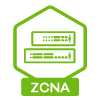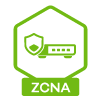Strange user and error while deleting the file "there was a problem with the network"
Options
All Replies
-
The only thing I found is... I understand that this is just related to the cloud service.Mijzelf said:That user doesn't have shell access. No password, and no certificate.You can try to find the package causing this:cd /i-data/sysvol/.PKG/grep -r "zK9UKHeN6" *I found pairs of files in etc that differ by "-" (group and passwd and shadow) Should this be?Yes, that is normal. It is the backup of the previous version created by adduser & friends.
0
Categories
- All Categories
- 442 Beta Program
- 2.9K Nebula
- 219 Nebula Ideas
- 127 Nebula Status and Incidents
- 6.5K Security
- 588 USG FLEX H Series
- 344 Security Ideas
- 1.7K Switch
- 84 Switch Ideas
- 1.4K Wireless
- 52 Wireless Ideas
- 7K Consumer Product
- 298 Service & License
- 476 News and Release
- 91 Security Advisories
- 31 Education Center
- 10 [Campaign] Zyxel Network Detective
- 4.8K FAQ
- 34 Documents
- 87 About Community
- 102 Security Highlight
 Freshman Member
Freshman Member


